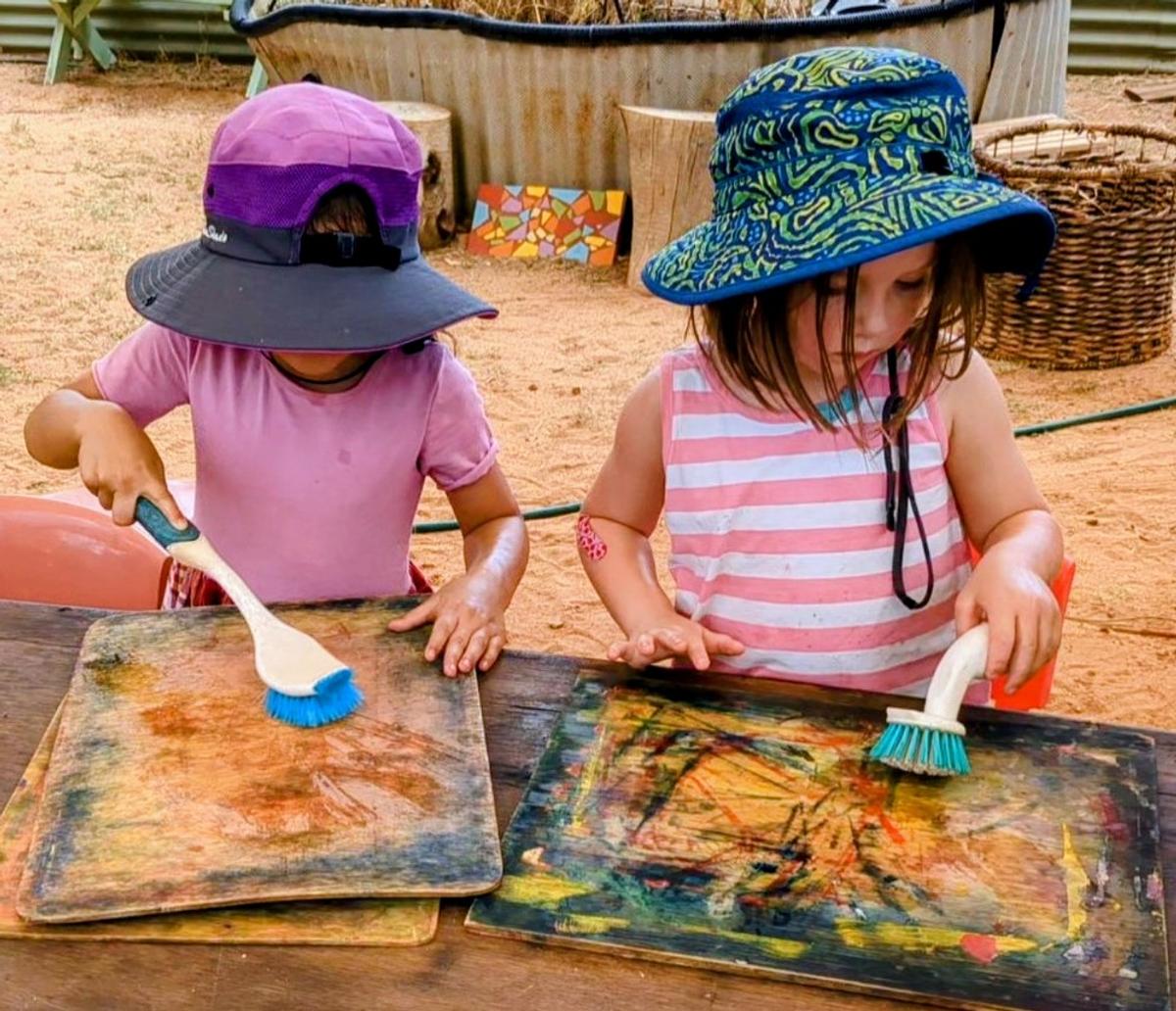Quest for Independence
From birth, children are on a quest for independence. We see this as babies try to spoon-feed themselves or as toddlers demand to dress themselves. Self-help skills for preschoolers are essential life skills that enable children to take care of themselves and their surroundings.
When children practice self-help skills, such as dressing themselves or open their lunch box, they practice their large and small motor skills, develop the ability to plan and sequence task performance, gain confidence in their ability to try new things and build their self-esteem and pride in their independence. Opportunities to develop independence are immensely important for building a sense of self and self-esteem — not to mention frustration tolerance and perseverance!
The Early Childhood Area at the Alice Springs Steiner school excels at supporting and promoting independence in young children. To foster self-care skills in the preschool, we
- encourage children to take an active role in their day-to-day activities, such as morning fruit time. The children help to cut up the fruit and set it out on the shared platters, then use tongs to choose three pieces at a go, and finally bring their own bowls to the wash tub when they have finished. They also are given the opportunity to show their capability in little, yet meaningful ways, such as buttering their own buns, or using the hose to water the pots in the garden.
- keep a consistent and steady daily rhythm, or routine. Learning to follow routines is one way for little children to become more independent. In Ruby Saltbush and Billy Button we make the daily rhythm simple and predictable and easy to anticipate. Children know what to expect and what will come next - there is great comfort and security in routine and then they are better equipped to take on responsibilities, like packing up or bringing the role to the office.
- use consistency in the words and signals to assist children and keep instructions very short and simple. Using the daily rhythm, often a familiar song is enough of an instruction, at other times, no words are needed at all.
- break down self-care skills into smaller steps and support the child through each step, so that in time, they can do more for themselves. In the preschool, we choose helpers each day to set the table – children this age love to help set out the plates and cups – one for each child, and even fill each cup with water from the large jug. Letting children carry out tasks often means that the task will take twice as long — and be three times as messy. Of course there are always little spills, but the children are also quite capable in finding and using the cloth to wipe these up. It does take a little bit longer, but seeing their pride at having helped in a real way is very rewarding. Soon there are less spills, and a group of capable and confident helpers!
- allow enough time for the child to participate in self-care activities without feeling rushed. It might be faster in the moment for the adults in Ruby Saltbush to take children’s shoes off, but consistently assisting through encouragement and giving them time to figure it out will mean they’ll soon do it themselves. When adults take a step back, kids learn how to power through frustration.
- provide opportunities for sculpting, painting and craft projects. These activities focus their attention on a contained activity for a period of time, giving them a sense of accomplishment and self-esteem, and the development of perseverance.
- Offer extended time for independent and unstructured play which is very important for fostering creativity, problem-solving, social skills and autonomy. However, most preschool children will still need (and want!) some engagement to guide and extend their play during unstructured play time.
A simple way parents can foster confidence and show children the faith they have in their children’s ability at school is to have their child carry and hang their own bag on the hook, take out and put their fruit in the bowl and their lunch in the basket. It is important that children acquire these skills because being independent in self-care tasks will also boost their self-esteem and eventually increase their capacity to face difficult situations with confidence.






















